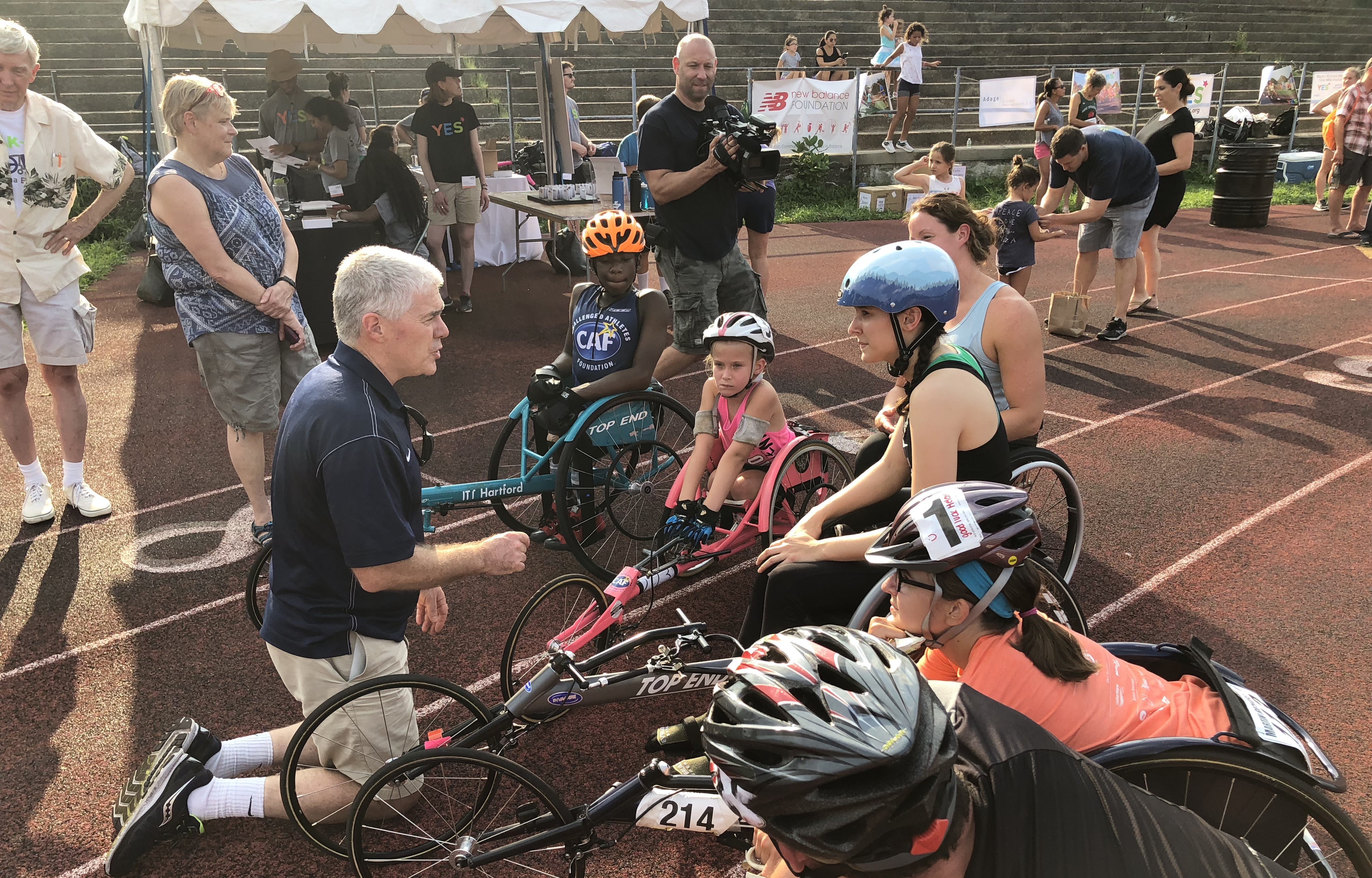When the Massachusetts Association for the Blind and Visually Impaired (MABVI) sought an inaugural recipient for its new Kara MacDonald Aspire award this April, the bar was set high.
MABVI established the award to honor the late Kara MacDonald, a thought leader who worked with the Boston Athletic Association to ensure that athletes with disabilities were included in events like the Boston Marathon.
When Joe Walsh ’84 found out he’d been chosen, he was surprised. “I was flattered and honored,” he says. “It took me very much off guard.”
Yet as founder and president of Adaptive Sports New England (ANSE), Walsh is very much a thought leader, too, with a CV that’s a testament to his tireless work. His organization helps vision- or mobility-impaired youth access sports programs across Massachusetts. “The work that Kara did in many ways parallels the work we’re doing currently, just in a different setting” he says.
A vision-impaired athlete himself, Walsh began Nordic skiing at Dartmouth, joining the XC team his senior year. He went on to qualify for the U.S. Paralympics Skiing Team and traveled to the Winter Paralympic Games in 1988 and 1992, winning a bronze at the 1988 games in Innsbruck, as well as three World Championship medals.
Following his Paralympic career, Walsh pursued higher education administration, with stints at University of Vermont and Dartmouth medical schools.
He also joined the Board of Directors for the U.S. Olympic Committee (USOC) at a particularly pivotal time: In 1998, Congress passed a bill to amend the Amateur Sports Act, strengthening provisions protecting the rights of disabled athletes. The USOC suddenly became responsible for Paralympic sports—and needed someone to spearhead it. “I happened to be the guy who was in the room at the right time,” Walsh says.
After a decade as managing director of Paralympics, Walsh came home to Boston and founded Adaptive Sports New England to focus on sports at a grassroots level.
In addition to overseeing weekly programs for kids with mobility or visual impairments, from wheelchair basketball to rowing to swimming teams, ASNE works with the wider community (including schools, YMCAs, and town recreation programs) to include disabled athletes in existing sports programs. The idea is that even students with visual or physical impairments can participate in competition in a meaningful way.
It’s a notion that stretches back to Walsh’s days Nordic skiing at Dartmouth. “At that time, the XC ski program accommodated developing skiers as well as superstars who raced Carnivals,” he recalls, citing the influence of his coach, John Morton, who encouraged his “seamless” transition onto the team and supported him even before it was clear he’d be competitive in the Paralympic arena. “I did step in a lot of puddles on trail runs, and I perhaps fell more than most of my teammates, but they were all very supportive,” Walsh says, offering proof of what’s possible when everyone can participate. “Most of them were not even aware that I was legally blind.”

